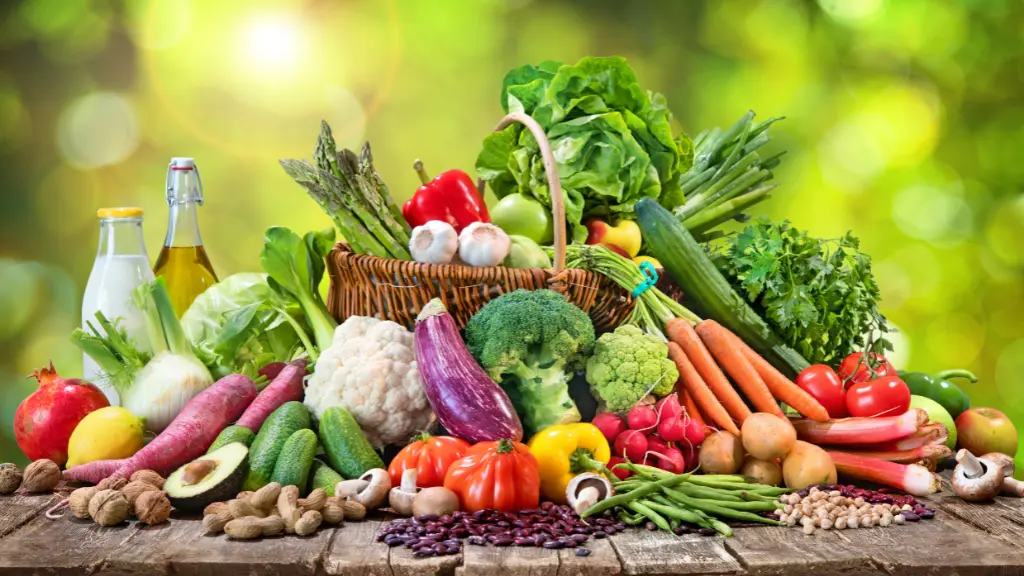Organic foods have become a symbol of healthy eating and sustainable living. With their higher price tags, they claim to offer better health and environmental benefits. But are they really worth the extra cost, or is it just a clever marketing strategy? Let’s dive into the truth behind organic foods.
You May Also Like: How Many Meals Should Indians Eat Daily for Optimal Health
What Does Organic Really Mean?
Organic foods are grown without synthetic fertilizers, pesticides, or genetically modified organisms (GMOs). In livestock, organic farming prohibits the use of antibiotics or growth hormones and emphasizes natural diets and humane treatment.
The USDA certifies products as organic if they meet strict guidelines. Labels such as “100% organic” or “organic” on products signify compliance with these standards.
Are Organic Foods Healthier?
The health benefits of organic foods have sparked significant debate.
- Nutritional Content:
Studies suggest organic produce contains slightly higher levels of certain nutrients, such as antioxidants and vitamin C. However, the difference is often minimal and may not significantly impact overall health. - Fewer Pesticides:
Organic foods typically have lower pesticide residues compared to conventional options. While the levels in non-organic food are usually within safe limits, some people prefer to minimize exposure to synthetic chemicals. - No Artificial Additives:
Organic foods do not contain artificial preservatives, flavorings, or colorings. This appeals to individuals seeking natural and minimally processed options. - Impact on Allergies and Sensitivities:
Some people report fewer allergic reactions when consuming organic foods, though scientific evidence remains limited.
The Environmental Perspective
Organic farming is often seen as more eco-friendly due to:
- Reduced Pollution: Avoiding synthetic fertilizers reduces soil and water contamination.
- Biodiversity Preservation: Organic farming practices protect pollinators and other wildlife.
- Sustainability: Organic methods focus on soil health and long-term sustainability.
The Case Against Organic Foods
Despite their benefits, organic foods have their critics.
- High Costs:
Organic products are often 20-50% more expensive than their conventional counterparts. This is due to labor-intensive farming methods and lower yields. - Limited Shelf Life:
Without artificial preservatives, organic foods spoil faster, leading to potential waste. - Not Always Local:
Many organic products are imported, increasing their carbon footprint. “Organic” does not necessarily mean “locally sourced.” - Health Myths:
Eating organic doesn’t guarantee weight loss or immunity boosts. Overeating organic junk food is still unhealthy.
Who Should Consider Going Organic?
- Health-Conscious Individuals:
Those wanting to avoid pesticides and additives may benefit from organic options. - Pregnant Women and Children:
Minimizing exposure to synthetic chemicals can be advantageous during vulnerable life stages. - Environmental Advocates:
Choosing organic supports farming practices that prioritize sustainability and ecological health.
Is It Worth the Cost?
The decision ultimately depends on personal priorities and budgets.
- Focus on organic for produce with high pesticide residues, like strawberries or spinach.
- Save on foods with low pesticide risk, such as avocados and bananas.
- Consider local organic farmers’ markets for fresher and more affordable options.
Conclusion
Organic foods offer several benefits, but they aren’t a magic bullet for health or the environment. For many, the choice boils down to a balance of cost, values, and health concerns. Whether you go fully organic or selectively choose organic products, the key is to eat a balanced, nutrient-rich diet that supports your overall well-being.











[…] You May Also Like: Are Organic Foods Really Healthy or Just an Expensive Trend? […]